
About Us

Kauai’s Hindu Monastery
Wailua River Noni Juice® is a project of Kauai’s Hindu Monastery, which collects organic Hawaiian noni juice. Located on the North Fork of the Wailua River between Kapaa and Lihue on the northernmost of the main Hawaiian Islands. In addition to our 70 acres of land on the north side of the river, which includes the monastery and two Hindu temples, we lease 312 acres of State-owned agricultural land on the river’s south side. There, we maintain a certified organic noni field, an outgrowth of our interest in natural healing, along with native Hawaiian trees (including one of the state’s larger new plantings of koa), hardwoods, landscape plants, and palms.
Monks Oversee Every Phase of Production
From harvest to juice to bottling, in order to ensure the finest noni juice from Hawaii, the Monks personally oversee every phase of production. The noni is picked ripe from our organically grown trees, washed and set in barrels to ferment for 60+ days, then pressed, filtered, and bottled with no added ingredients. This is the process that is used to produce our signature product, organic Hawaiian noni juice.
Nothing but Pure Noni Juice
Wailua River Noni Juice is a direct-from-the-farm product and contains nothing but noni. Certain popular noni products on the market are reconstituted with water from concentrates and then flavored with grape and blueberry juice and “natural flavors.” They are different products and cannot be compared to certified organic Hawaiian noni juice.
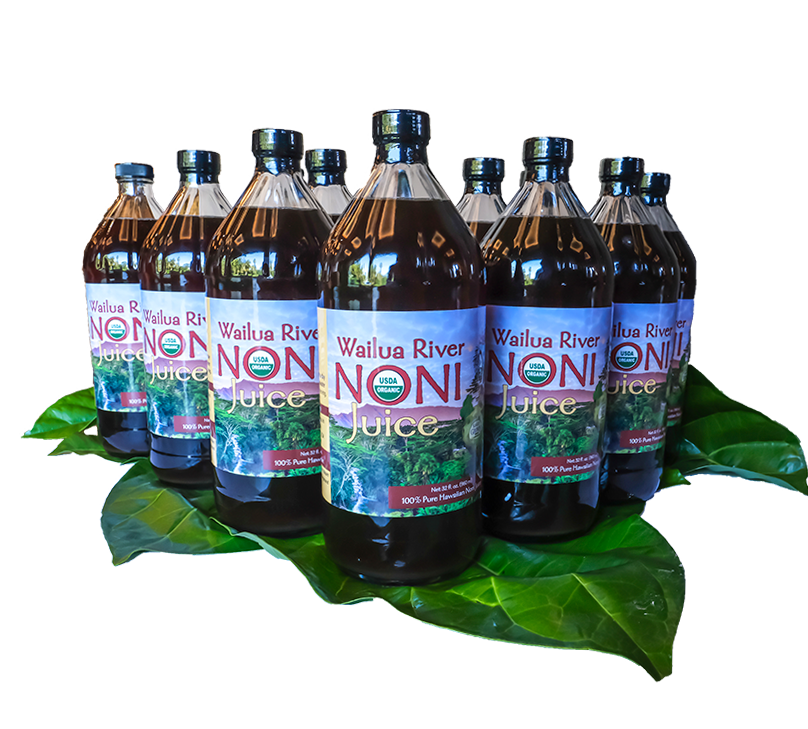

Made by Monks
Kauai's Hindu Monastery

Certified Organic
USDA Approved
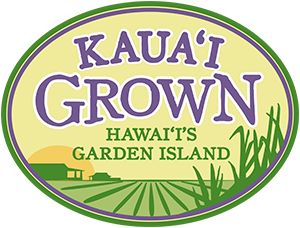
Kaua'i Grown
Made in Hawaii
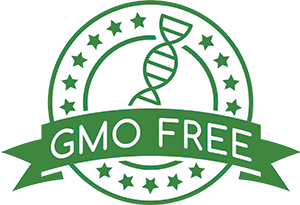
Non-GMO
All Natural
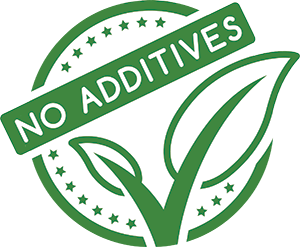
No Additives
Just Noni Juice
From Blossom to Bottle
Where it Begins
This is a sunset view of the North Fork of the Wailua River with Mount Waialeale in the background. Kauai’s Hindu monastery was founded in 1970 by Satguru Sivaya Subramuniyaswami at an area the Hawaiians named Pihanakalani, “where heaven meets the earth.” In the tradition of South Indian aadheenams (monastic theological centers), we maintain over 200 acres of agricultural land to grow much of our own food, noni fruits, and hardwood trees.
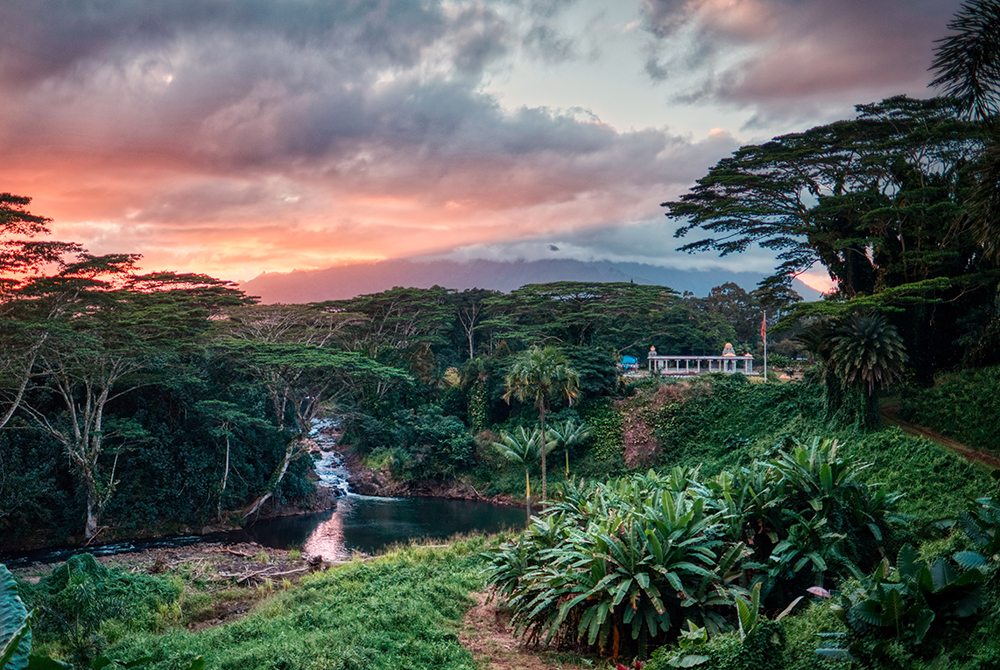
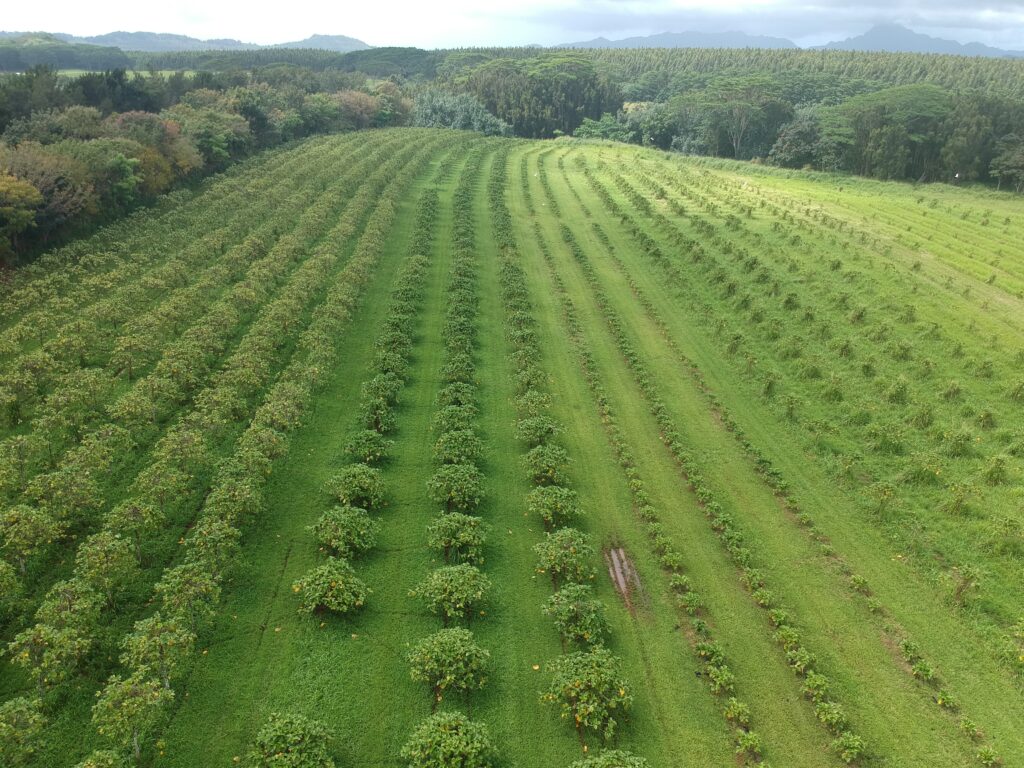
Our Noni Trees
At present, we have 15 acres planted with 1,400 trees on land leased from the State of Hawaii. The noni tree has uses beyond the fruit–leaves are edible, and the roots provide an intense orange dye. That is processed into organic Hawaiian noni juice and endered out in the market.
Hand-Picked Fruit
Noni fruits year around, slowing down in the months of July and August. We pick ours when it is ripe and turning white. At this elevation, near the base of our ancient Volcano, we receive high rainfall which grows abundant fruits and gives our juice a lighter finish.
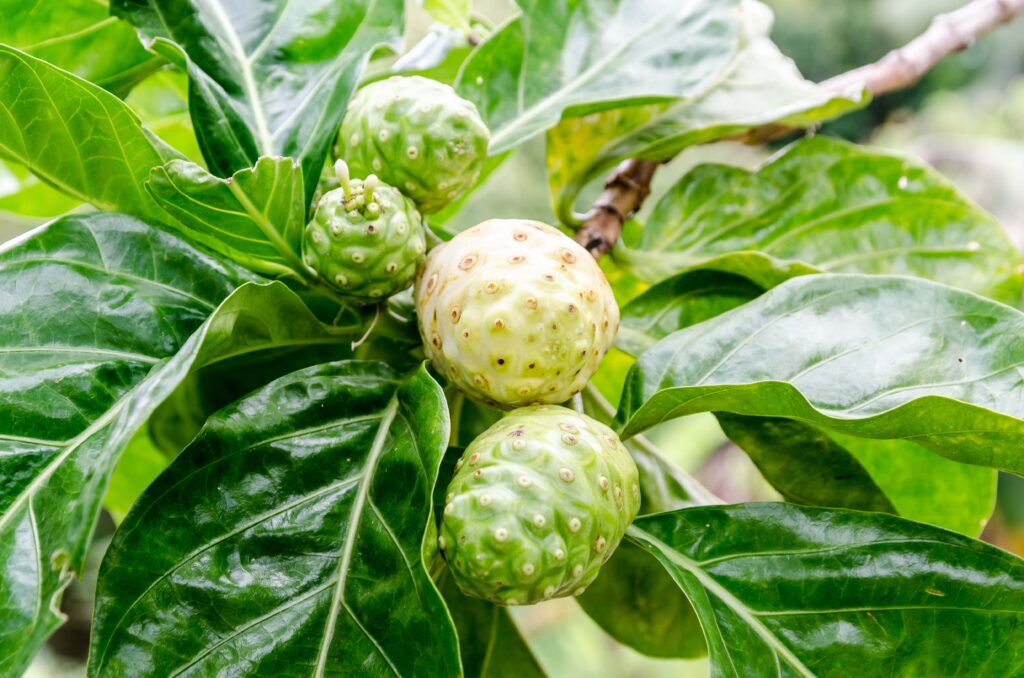
Buy Organic Hawaii-Grown Noni Juice!
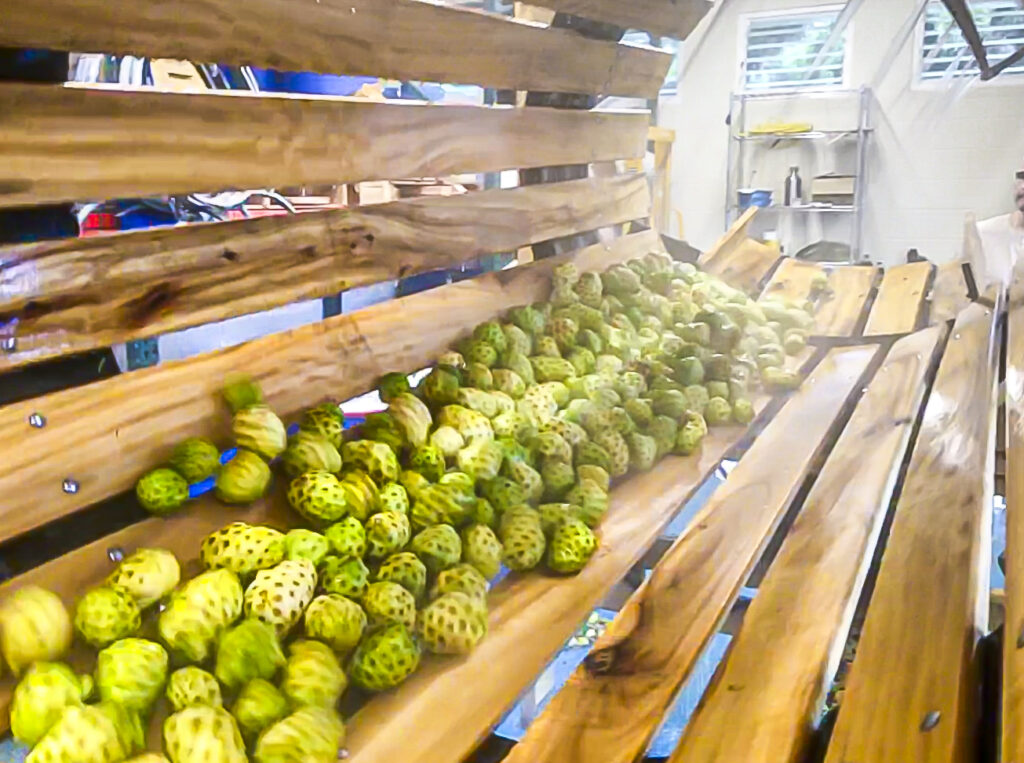
Washed and Barreled
The noni is brought in from the field to our commercial kitchen at the monastery and washed thoroughly in a round rotating “barrel washer”. It takes several minutes to tumble from one end to the other as it is sprayed with clean, hot water. Nothing is added to it, and it begins to naturally self-ferment. It is ready to press after six to ten weeks.
Pressing the Fruit
A large German wine bladder press and two smaller Italian presses as backups are used to squeeze the juice from the fermented fruit. The center of the press is a large rubber bladder that fills with air and presses the juice against the outer cylinder. The press is inflated, deflated, rotated to break up the fruit again, and then inflated through several more cycles, giving a yield of 50% juice by weight. Fresh-squeezed organic Hawaiian noni juice pours from the press and is pumped into settling tanks.
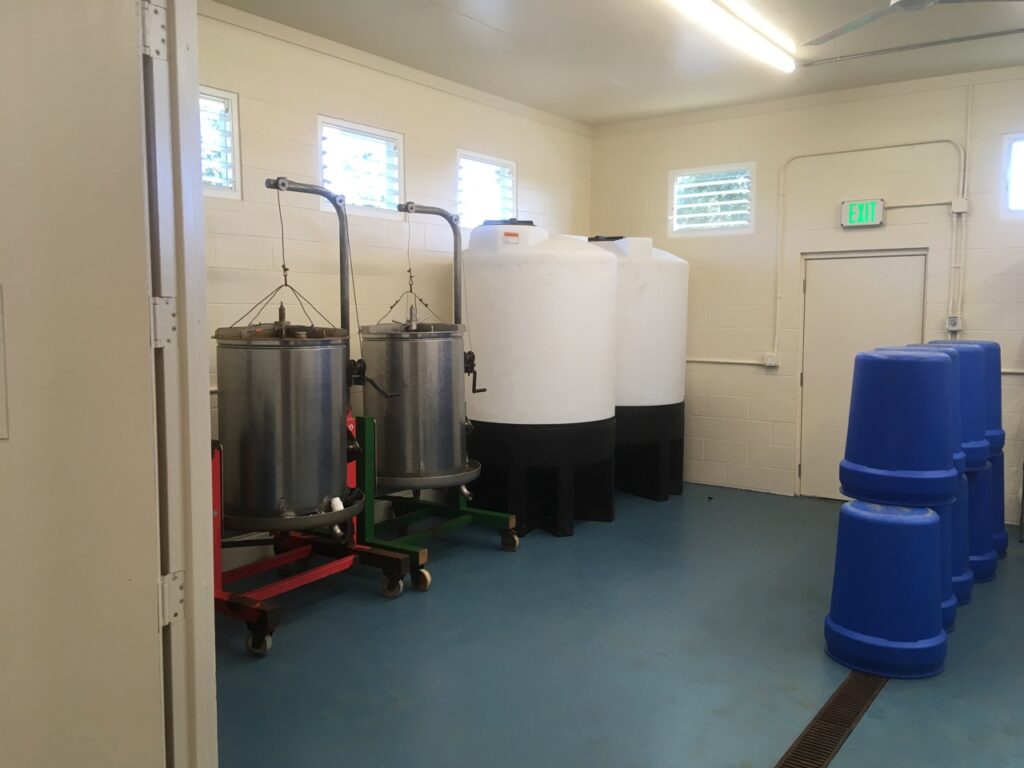
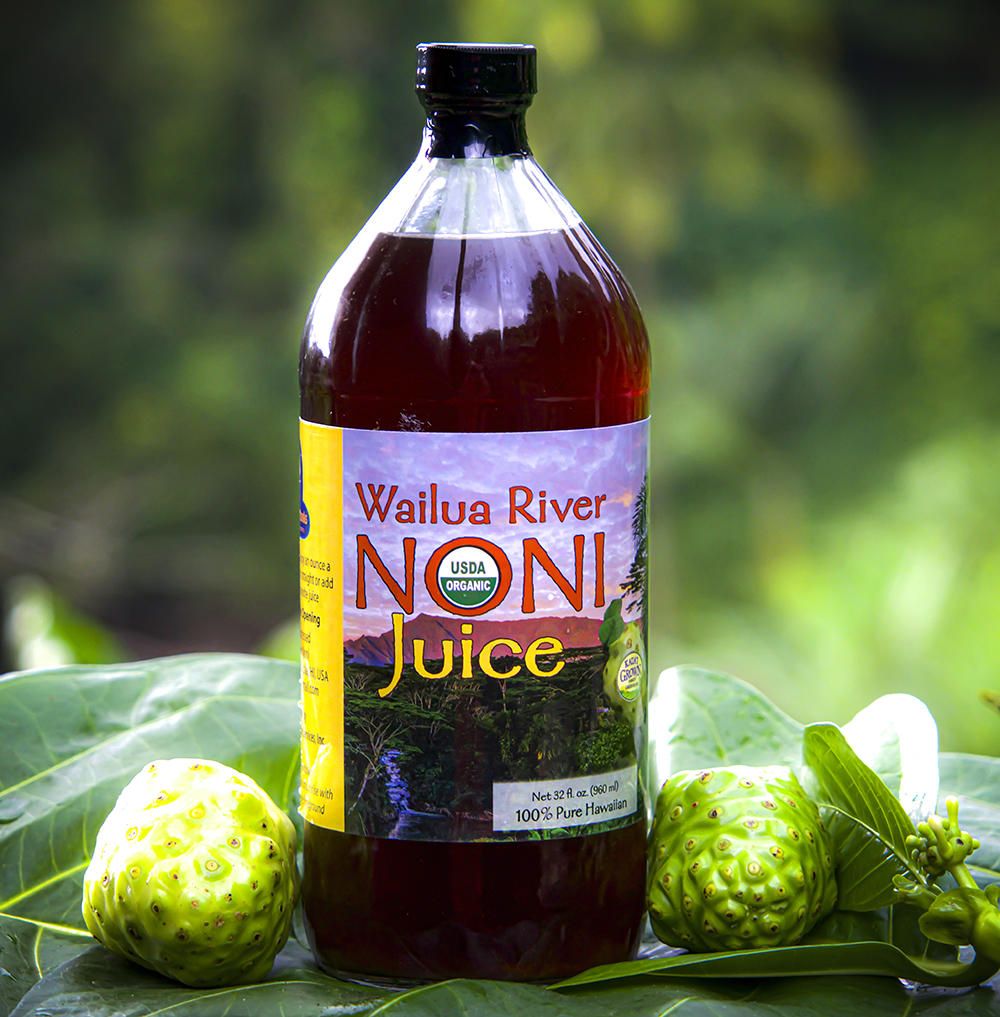
To the Bottle
It sits in the tanks for several weeks while the sediment settles to the bottom, which clarifies the juice (the same process as used with wine). After it settles, the clarified organic Hawaiian noni juice is drawn off the top of the tank. Once enough juice is pressed for a bottling run, it is then bottled by us in our commercial kitchen The final product is a refined juice that, while an acquired taste, is an excellent product.